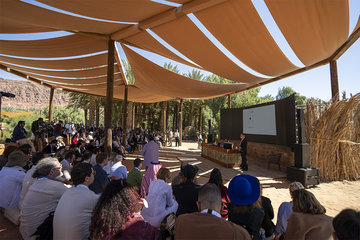
Last year on December 1, Saudi Arabia embarked on a milestone journey as it assumed the G20 (Group of 20) Presidency. This week, just a few months into its term, the Kingdom is now third amongst G20 countries with regards to reducing carbon emissions from fuel consumption. The results come from a recent analysis by the King Abdullah Petroleum Studies and Research Center (KAPSARC), which claims that Saudi Arabia has jumped from fourth position last year to its current top three title, coming in after Brazil and France, and ahead of Germany and Japan.
The study, entitled “Saudi Arabia’s 2018 CO2 Emissions Fall Faster Than Expected,” was published on the sidelines of the Davos forum. The study showed that Saudi Arabia brought down carbon emissions by about 4.4 percent or 26 million tons in 2018, reaching 553 million tons of carbon dioxide in 2018, compared to 579 million tons in 2017. The previous estimate was a 2.4% reduction, making the Kingdom’s efforts a significant achievement.
The 15th annual G20 Leader’s Summit will be held this year for the first time in Saudi Arabia’s capital Riyadh, on November 21 and 22. The summit’s agenda will include financial, economic, and social issues including energy, the environment, climate, the digital economy, trade, agriculture, healthcare, education, and labor. Formed in 1999 to discuss policy matters and global financial stability, the G20 is an international forum for the governments and central bank governors from the European Union and 19 countries including Germany, the US, Brazil, Argentina, China, Indonesia, Russia, France, South Africa, and the UK.


















